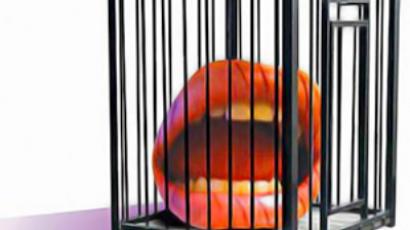Germany to bring in Turkish police to combat crime in ethnic community
Turkish immigrants in Germany are often criticized for failing to fit into the society of the new home which has led to a high crime rate. Consequently, authorities plan to bring in Turkish police to combat the problem.
In a new plan, Turkish police will help their German counterparts deal with troublesome neighborhoods – a scheme which has already faced criticism.
Local resident of old German city Cologne, Krystal Tank feels like a stranger in her own country. Every day she enjoys the summer parks and life in the Cologne suburb when off work, but she feels totally outnumbered.
“It all happened very silently,” she recalls. “The German population moved away, their children were taken out of the schools, and suddenly there were only Turks here,” Krystal Tank told RT.
There are around two million Turkish citizens living in Germany, with many more having adopted German citizenship.
Special worker recruitment agreements from the 1960s made Germany the destination of choice for Turkish economic migrants.
“Germany have asked immigrants to come because we needed them as work force. Now they are here and the question is how to make them integrate into society,” Professor Albert Scherr from the Committee for Basic Rights and Democracy in Freiburg says.
As well as being the largest ethnic minority, some believe the Turkish are also the worst at fitting into their new culture.
“It's a big problem that the Turks of the last generation haven't integrated but have developed further away. We have 15 to 20-year-olds who have moved further away from German culture than older immigrants. This has a big effect on their behaviour,” says Andreas Morda from Pro-Cologne Anti-Islamisation Protest Group.
Pro-Cologne is a small group, and although many Germans think multi-culturalism isn't working, many also think Turks should be allowed religious and cultural freedom.
“Most immigrants are integrated: they do ordinary work, live a legal life, behave as normal citizens,” Professor Albert Scherr says.
When RT went to some of these areas, many Turks themselves denied that there were problems.
“We are trying to live together and I understand there are some problems. But it’s not true that Turks can't integrate,” a young Turkish lady on the street said.
“We all get along. There are many Turks, Russians, Germans and Arabs here. On TV, in the media they talk about people shooting each other and fighting, but that's not the case here,” a Turkish passerby noted.
As well as a cultural divide, there is also the more serious problem of crime.
Unemployment among young Turks in Germany is high, with the resulting ennui leading to delinquency. Krystal has seen it all.
“Petty theft and violence – that's what the young ones do amongst themselves. Drugs, vodka – Turks don't drink as we know it, but they do fight each other,” she says.
And they don't just face off with fellow Turks. In a new plan police from Turkey will help their German counterparts patrol troublesome neighborhoods. Those behind it don't want segregation, but rather a more sympathetic approach to Turkish communities.
“Of course the German police can handle the situation. But there have been lots of recent reports about attacks and violence against police officers who tried to enforce the law in such problematic regions with a high violence potential. So we had to think about what we could do better,” President of the North Rhine–Westphalia Police Union Erich Rettinghaus said.
However, the plan is getting a lot of criticism with some saying its clear evidence that the police don't know how to deal with Turkish communities. Krystal Tank is one of those who think it discriminates against Turks.
“I don't like this plan. The Russian and Polish minorities don't have police. It’s not fair for the Turkish to have them. If we have Turkish police, other people won't respect German police,” she argues.
It is for the people to decide if this plan is an example of police initiative, or of a failure to engage with Germany's immigrant population.













